Minister Bahati calls for AfCFTA implementation to grow Africa’s industry
AfCFTA is a continental trade agreement that turns 54 fragmented economies into a single market of 1.5 billion people with a combined GDP exceeding $3 trillion.
David Bahati Minister of State for Trade, Industry and Cooperatives (Industry) (center) shares a group picture with African Union, UN and Government leaders at the opening of the African Industrialization Week themed: "Transforming Africa's Economy through sustainable Industrialization, regional integration and Transforming Africa's Economy through sustainable Industrialization, regional integration and innovation.” This was at Speke Resort Munyonyo on November 17, 2025. (Photo by Maria Wamala)
___________________ Industry trade minister, David Bahati, greeting guests at the event. (Credit: Maria Wamala)
As Uganda joins the rest of Africa to celebrate the Africa Industry Day, industry trade minister David Bahati has urged African countries to focus on the implementation of the African Continental Free Trade Area (AfCFTA). 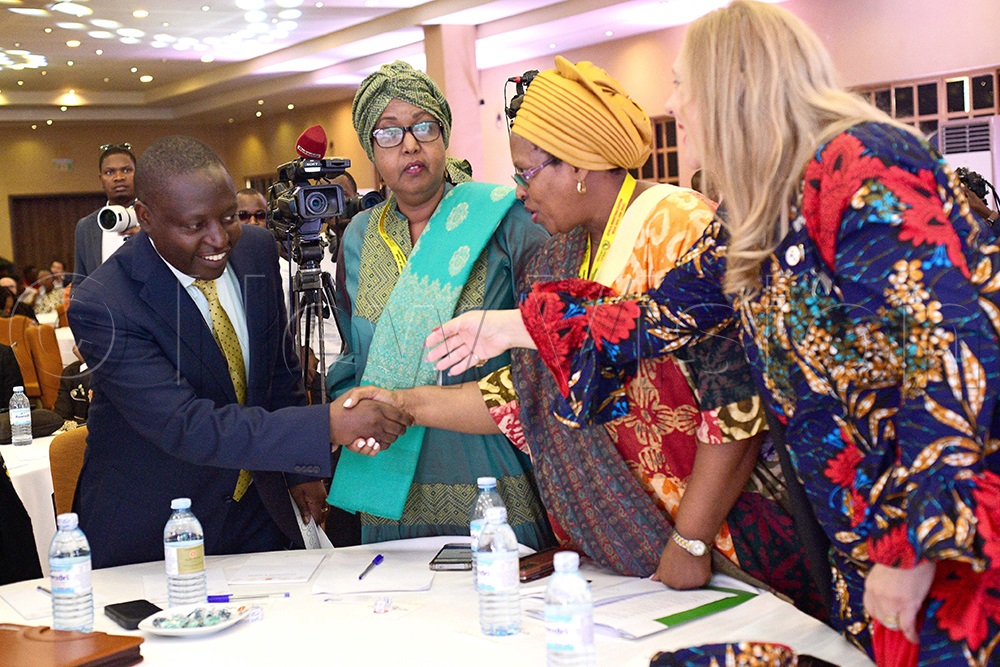
The day celebrated every November 20, was designated by heads of state during the 25th Ordinary Session of the Organisation of African Unity (OAU) in 1989. This declaration, later endorsed by the United Nations General Assembly, affirmed industrial development as a cornerstone for achieving the continent’s long-term growth and structural transformation.
AfCFTA is a continental trade agreement that turns 54 fragmented economies into a single market of 1.5 billion people with a combined GDP exceeding $3 trillion.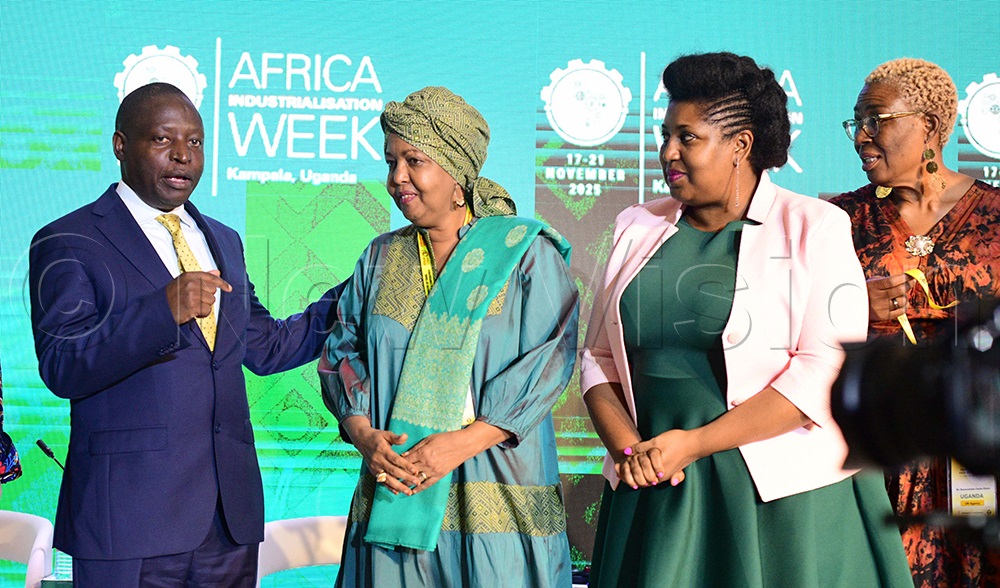
(L-R): David Bahati Minister of State for Trade, Industry and Cooperatives (Industry), Mrs. Ron Osman, Director for Industry, Minerals, Entrepreneurship and Tourism (IMET) at the African Union Commission, Sarah Kagingo Vice Chairlady of the Board of Directors at Private Sector Foundation Uganda and Nwanne Vwede-Obahor the United Nations Development Programme's (UNDP) Resident Representative for Uganda interact at the opening of the African Industrialization Week at Speke Resort Munyonyo on November 17, 2025. (Photo by Maria Wamala)
“We have witnessed the achievements – African factories are open and competitive. Now, we must focus on the meticulous detail of the implementation of this avenue,” he said.
Adding that this should be worked on through policy harmonisation, the infrastructure execution, the targeted empowerment of our women and youth, and the strategic mobilisation of finance,” he said on November 29, 2025, during the ongoing 4th Africa Industrialisation Week taking place at the Speke Resort Munyonyo in Kampala city.
Since its inception in 1989, Africa Industrialisation Day is observed as a continental gathering used to advance industrial development, economic diversification and structural transformation.
For Uganda, Bahati said Uganda’s industrial base is growing because of the insistence on value addition to raw materials, which is currently earning the country and manufacturers more incomes than before.
For Example, when exporting unprocessed coffee, it goes for $2, when processed, it earns between $20 and $50. That is 10 times more value for the same coffee beans.
He added that through Uganda’s industrialisation efforts, Uganda’s economy has grown from $4 billion in 1986 to $$61.3 billion in FY 2024/2025. Manufacturing now contributes 15.6% (equivalent to $ 9.6 billion) to Uganda’s GDP.
Bahati explained that this year's events were characterised by the hosting of the 4th African Women in Processing Forum and the Africa Youth Start-Ups Forum.
These integrated events underscore our commitment to empowering women and youth as key drivers of Africa’s industrial future.
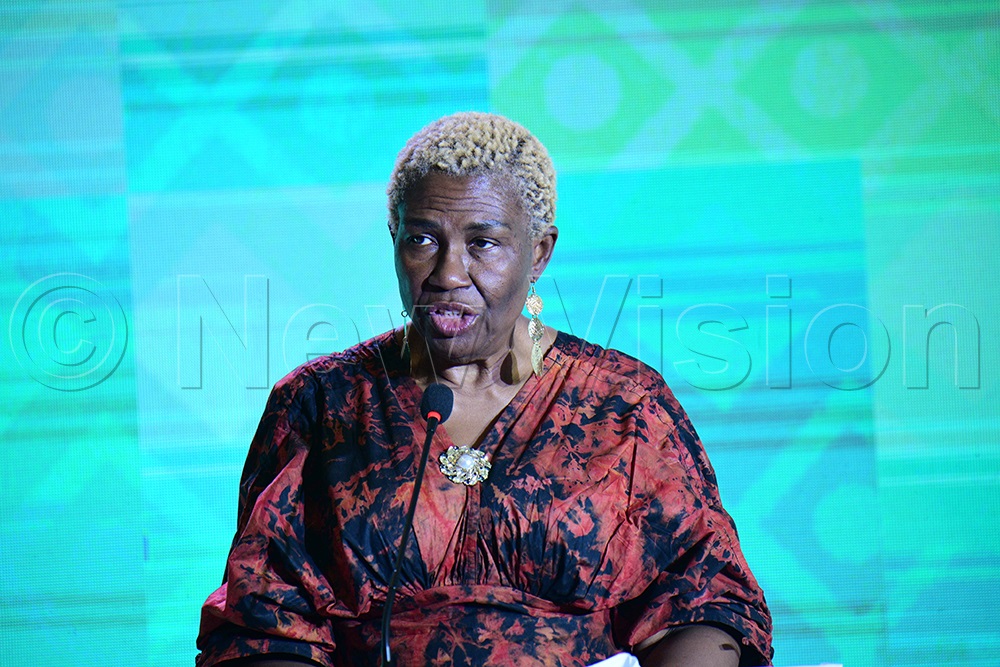
Nwanne Vwede-Obahor, the United Nations Development Programme's (UNDP) Resident Representative for Uganda, at the opening of the African Industrialisation Week at Speke Resort Munyonyo on November 17, 2025. (Photo by Maria Wamala)
Women are the backbone of Africa’s industrial sector, particularly in agro-processing and small-scale manufacturing,” Bahati said.
Emphasising the importance of youth, he said that these are an asset which should be utilised through industrialisation, not just as a source of labour but source of innovations, that can transform the industrial sector on the continent.
He explained further that Africa’s industrial sector contributes 10.4% to the continent’s GDP with a growth rate of 3.6%, according to the World Bank.
Additional information from the African Union Commission adds that Africa’s share of global manufacturing is estimated at 2%, driven primarily by industries such as food products, non-metallic minerals, wood, textiles, beverages, and emerging medium-high technology products like automobiles and electrical equipment.
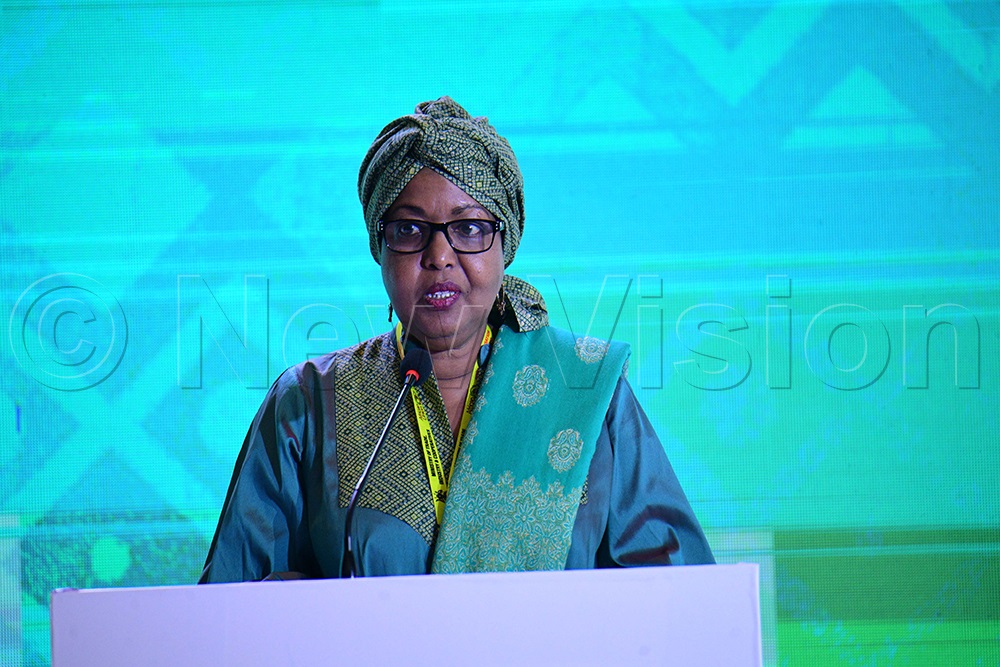
Mrs Ron Osman, Director for Industry, Minerals, Entrepreneurship and Tourism (IMET) at the African Union Commission, at the opening of the African Industrialisation Week at Speke Resort Munyonyo on November 17, 2025. (Photo by Maria Wamala)
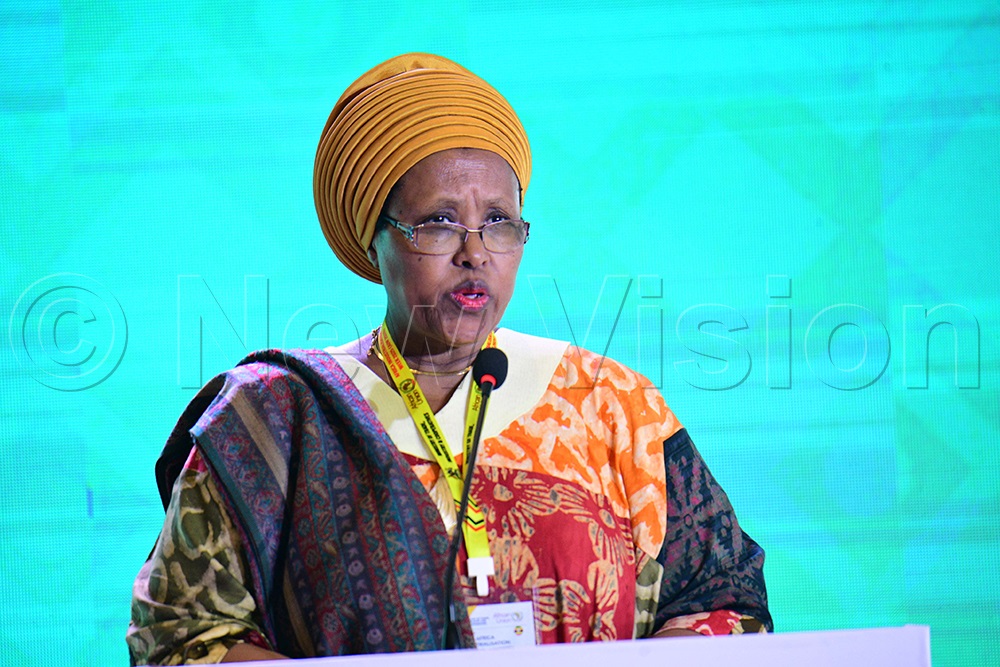
Rt. Hon. Grace. M. Kabayo, Secretary General of the Pan African Women organisation (PAWO) & Senior presidential adviser at the opening of the African Industrialization Week at Speke Resort Munyonyo on November 17, 2025. (Photo by Maria Wamala)
In 2024, Africa’s GDP was estimated at $2.8 trillion, representing a substantial portion of the global economy but still considerably smaller than the GDPs of major economic powers like the United States of America ($29.18 trillion), China ($18.74 trillion) and Europe ($19.99 trillion).
They add that key growth drivers of Africa include a youthful and expanding population, infrastructure development, and the African Continental Free Trade Area (AfCFTA), which is expected to boost intra-African trade by up to 52% by 2030.